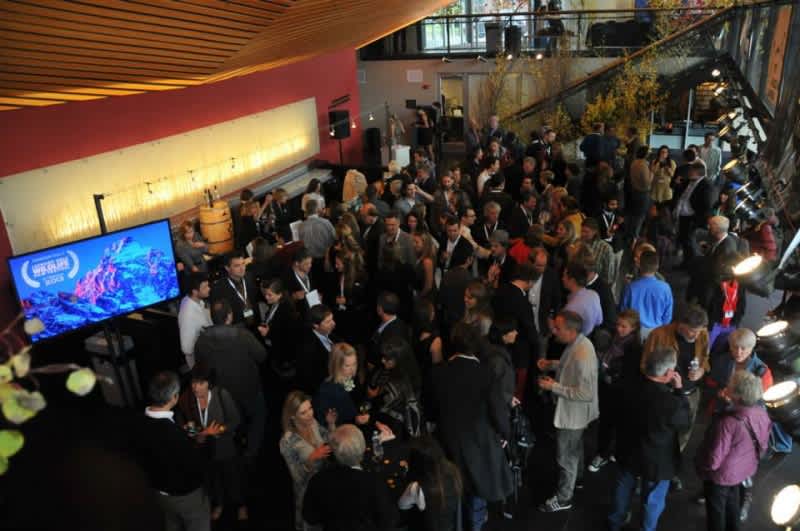Film Festivals and the Future of Outdoor Recreation
James Swan 07.16.14

Films, television, and video in general are the primary storytellers of our times, and stories are a prime force in creating and changing culture, including how people view outdoor sports and conservation. There is a definite need for more mainstream TV and films that show outdoor sports in a positive way. One way to encourage more positive stories about outdoor sports is through awards shows and film festivals that support filmmakers, as well as entertain and educate.
You may think that mainstream media award shows and festivals are probably biased against hunting and fishing. Not so. Quality can prevail, even over political and philosophical differences. Back in 1992 A River Runs Through It won a number of awards awards including an Oscar for Best Cinematography, and 1996’s The Ghost and the Darkness won Oscars for Best Sound Effects Editing.
Award shows like the Oscars and Emmys began over 50 years ago. Film festivals began in Europe, with the Vienna Film Festival in 1932. The United States didn’t begin holding major film festivals until 1957 when the first San Francisco International Film Festival was held. Today, film festivals are everywhere. Filmfestivals.com lists 4,000 festivals already underway, and more are in the works.
Festivals focus on all kinds of themes, and they also include educational seminars and workshops. Following Earth Day 1970 when millions of people participated in activities and the news media began to seriously focus on ecology, festivals to honor excellence in films and TV concerning ecology and wildlife slowly began to appear. Today there are at least two dozen environmental media festivals in the United States alone. Some of the most notable include the DC Environmental Film Festival, the Wildlife Conservation Film Festival, the Wild and Scenic Film Festival , the International Wildlife Film Festival, and the Jackson Hole Wildlife Film Festival. Most are held at locations that have scenic natural beauty or political significance. There’s also at least one online festival, the Green Unplugged International Film Festival. None of the existing award shows and film festivals focus primarily on outdoor sports, however.
There presently are awards shows for outdoor sports programs for the networks they appear on, such as the Golden Moose Awards for the Outdoor Channel and the Sportsman’s Choice Awards for the Sportsman Channel. There are also tourism film festivals that may include outdoor sports. What we need are award shows and festivals that focus on outdoor sports in mainstream media.
Creating new festivals is certainly one way, but the outdoor sports community can also encourage existing TV and film festivals and award shows to pay more attention to outdoor sports. Some examples of what can be done:
- Vote with your feet. Festivals and award shows stay in business thanks to sponsors, advertisers, entrance fees, and attendance fees. If more people attend festivals that support outdoor-focused mainstream TV and films, then general festivals and awards programs will more readily recognize these kinds of shows and the people who produce them—and it becomes easier for producers to sell their programs to distributors and networks.
- Sponsor support. Especially for potential sponsors, it can be shown that TV and films can significantly change outdoor sports popularity. A River Runs Through It, for example, put hundreds of thousands of new anglers in the streams as well as pumped considerable money into the fly fishing industry. Both archery and wilderness survival programs have grown in popularity as feature films and TV have shown heroic archers and wilderness survivors.
- Create new ways to help fund programs. PBS, NEH, and large foundation funds are regular sponsors for funding and competition for that funding is always tough. Foundations and organizations that readily support films with an outdoor recreation theme are a rare species.
I became intimately familiar with the struggles surrounding sponsor funding. At the request of California Fish and Game Wardens, from 2007 through 2009 we produced the documentary Endangered Species: California Fish and Game Wardens, that can be seen on CarbonTV.
It was tough to raise the funds to make this film. We tried all the regular channels, and did not fing any willing to support the film, although they thought it was a good idea. Finally, thanks to the wardens, a foundation, several outdoor sports organizations, a number of county fish and game commissions, and the Sierra Club, this documentary got made.
The basic message of the film is that California has a crucial shortage of game wardens, resulting in considerable damage to the state’s natural resources, as well as outdoor recreation opportunities. As a result of wardens distributing copies of the documentary throughout the California state government and holding screenings throughout the state at schools, public meetings, sportsmen’s expos, and the like, budgets cuts for wardens were scrapped, a stamp that can be purchased wherever licenses are sold to fund warden training was created, new public relations programs were able to begin, and more wardens were hired.
Conservationists need to create ways to support more serious mainstream films and TV about outdoor sports. Here again, festivals and award shows can help encourage major TV and film producers to tackle outdoor sports stories by showing that people want to see such programs.
This is the Information Age, and the media plays a very important role in creating and changing public opinion. Mainstream movies and TV screenings that tell the stories of ethical outdoor sportsmen and sportswomen can make a difference. It’s time to create some new festivals and award shows to help sell the value of outdoor recreation.
If you don’t have a wildlife or ecology film festival in your area, one way that you can help spread the work of the festivals to hold a local screening of the winners, such as what the Jackson Hole Wildlife Film Festival is offering.

